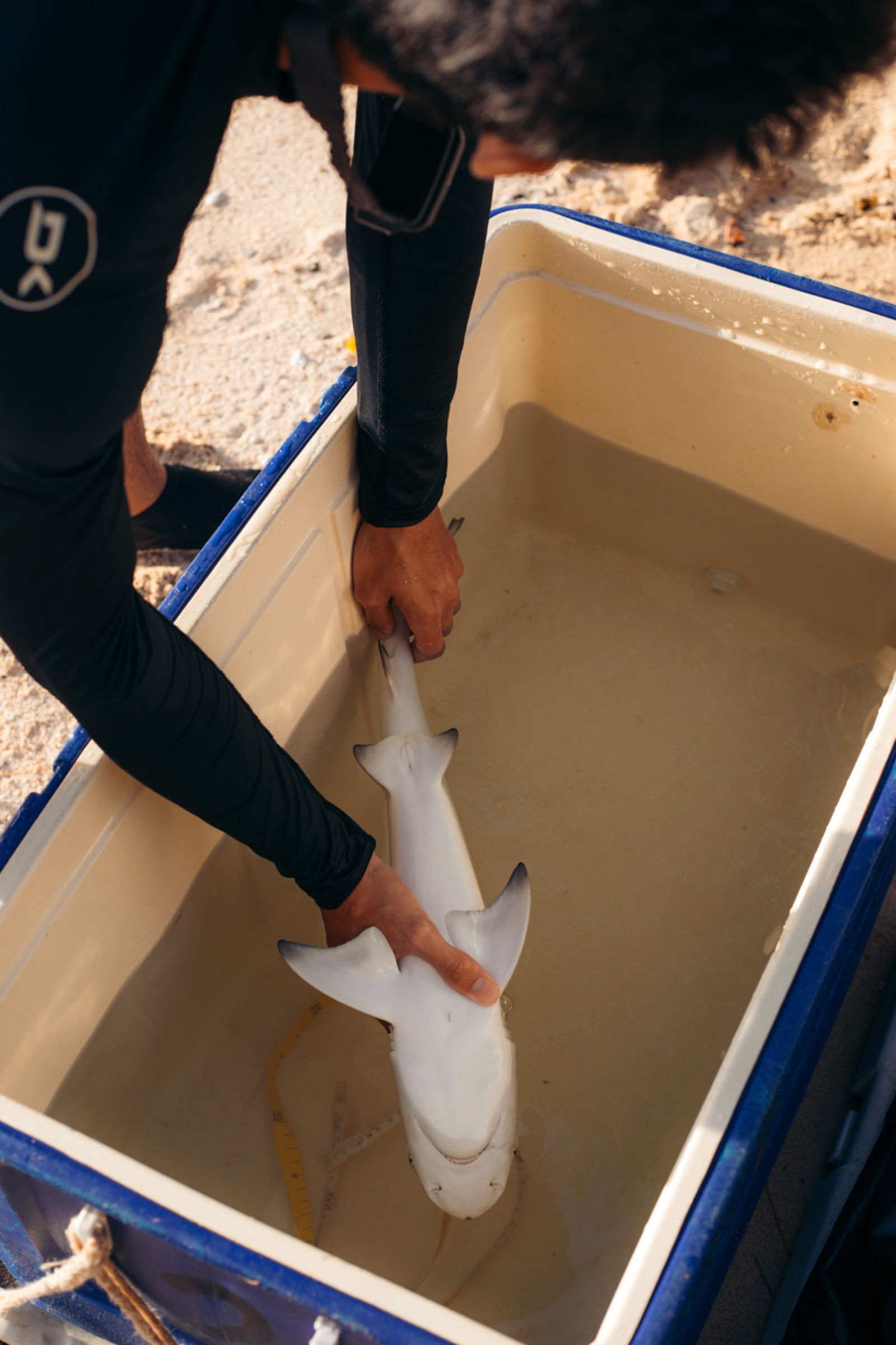‘Playing dead’ overrated for sharks, rays
‘Playing dead’ might be the key to survival for many species in the animal kingdom, but new research from James Cook University suggests it’s no great help for sharks and rays.

A new study co-authored by JCU PhD candidate Joel Gayford and Professor of Marine Biology Dr Jodie Rummer has found the freeze response, or ‘tonic immobility’ (TI) that was present in four of the 13 shark, ray and chimaera species his team analysed serves no function in their modern environment.
“We were fascinated by how some sharks completely freeze when turned upside down, while others don’t at all,” said Dr Rummer.
“This begged the question - what advantage, if any, does this response actually provide in today’s oceans?”
Mr Gayford said the team’s finding suggested the phenomena, which is induced when certain shark or ray species are turned upside down, could be an evolutionary hangover from a bygone era when it once may have helped avoid predation.
“We need more data to reach any definitive conclusions, but our theory is that tonic immobility has persisted in these species simply because it isn’t that harmful, even if it doesn’t provide any actual benefit to survival,” he said.
“None of the existing hypotheses about why sharks and rays go into tonic immobility is backed up by the evidence, so perhaps in this case the simplest explanation is the correct one: tonic immobility does not provide any function at all in these species.”
Even those species analysed that did not possess TI were found to have possessed it at some stage in their ancient past, with the team using a process known as “ancestral state reconstruction” to trace the evolutionary history of TI in cartilaginous fishes over a time period stretching past 200 million years.
“This technique essentially uses probability to estimate whether tonic immobility was present or absent along each branch of the evolutionary tree of cartilaginous fishes,” Mr Gayford said.
“Chimaeras, one ray, and members of three different orders of shark in the group we analysed seem to have all lost the ability to go into tonic.
“Our evolutionary analyses indicate that tonic was lost independently at least five times, so once in each of these groups. It definitely seems that in some species there may be disadvantages to going into tonic.”
“For species that squeeze into tight crevices or crawl along the seafloor, like some benthic rays and sharks, going limp or unresponsive when turned over could actually be dangerous,” Dr Rummer added.
“They need agility and control in those complex reef environments - so losing this behaviour might have actually been a benefit.”
Mr Gayford said while it was difficult to speculate on what purpose TI served for sharks, rays and chimaeras in ancient marine ecosystems, one possibility could have been as a mechanism against predation from other fishes of the same era.
“Ultimately there’s no way of knowing. We don’t fully understand how ancient marine ecosystems worked, or which species preyed on which,” he said.
“In modern day eco systems, killer whales (orcas) have learned to exploit tonic immobility, turning sharks and rays upside down to immobilise them and then extract and consume their nutrient-rich livers.”
Dr Rummer said the study helped researchers “rethink long-held assumptions about shark behaviour”.
“Tonic immobility isn’t necessarily a clever survival strategy - it might just be evolutionary baggage, a leftover trait could even be slowly disappearing,” she said.
The project, conceived and led by PhD candidate Joel Gayford and JCU Professor of Marine Biology Dr Jodie Rummer, began in 2022 as a global collaboration involving researchers and aquaria from Australia, the United Kingdom, Brazil, Mexico, Italy, the USA, Canada, and Indonesia.